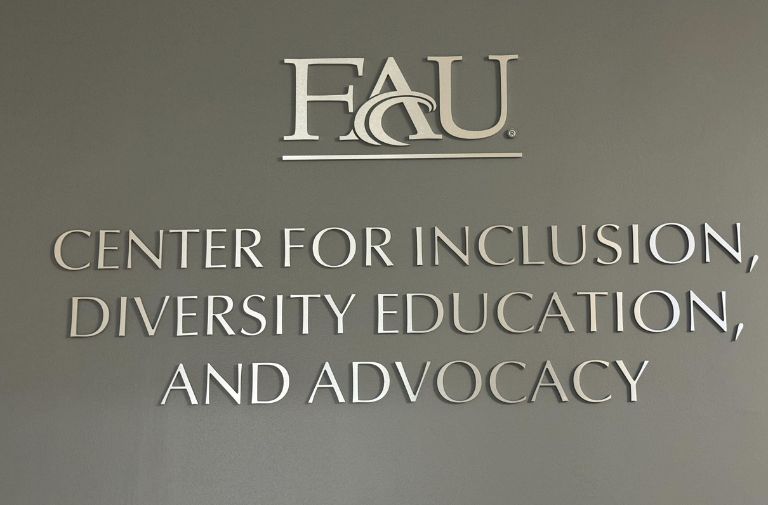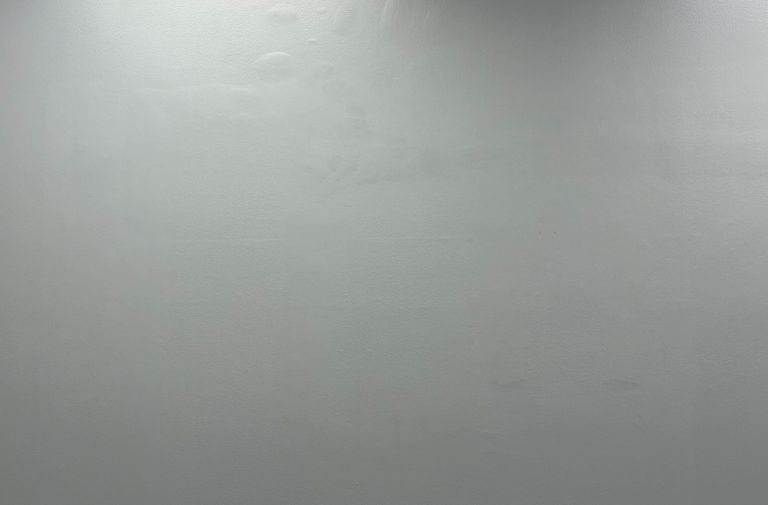When the DEI programs of the University of Florida, and University of North Florida were shut down, they were met with student resistance and protests.
When FAU’s Center for Inclusion, Diversity Education, and Advocacy (IDEAs) and its DEI programs were quietly dismantled, it was met with a whimper.
It just closed up shop and its employees moved elsewhere in the university, as OutFAU reported back in January. Now the university has announced it will begin reviewing all of its diversity, equity and inclusion related expenditures as well as to make sure all general courses comply with the new state regulations.
Meanwhile, a group of students and faculty are now coming together to discuss the state’s attacks on education. They held an event on April 15 where they gave speeches about the effects of recent legislation that led to the closure of the former Center for IDEAs last summer and sociology as a removal of a general education requirement through the state university system this January.
“This coalition formed in opposition to attempts by the state to suppress a field of study that asks important questions about society,” said sociology professor Philip Lewin. “And I think what was cool about this particular coalition is that it was student led and student organized. I think the narrative that we've heard for the last few years is that professors at the various Florida universities are indoctrinating passive students who don't have the ability to think for themselves, and that we’re eliminating sociology from the general education curriculum to protect them from these ‘dangerous’ viewpoints. The coalition formed to challenge that false narrative.”
Maxx Fenning noted the timing of FAU’s anti-DEI crusade and its limited resources as two factors that perhaps kept students from organizing as they did on other campuses.
Fenning is a former FAU student, current UF student, and also the executive director of PRISM, an organization focused on LGBTQ+ youth in South Florida.
At UF, for instance, Fenning said there was “an organized movement bubbling up.” But at FAU, while he called the students’ groups “amazing,” he doesn’t believe they have the “same scale and scope to feel empowered.” He also noted that the Youth Action Fund played a significant role in those protests on other campuses.
According to its website, the Youth Action Fund “is a collective of Gen-Z activists fighting against the far-right culture war raging throughout Florida.” The organization doles out money to young activists to assist in turning their ideas into action.
“So I think that's also a major component is that there were resources in place to really make a moment like that happen,” he said.
FAU appeared to be one of the first, if not the first, to begin dismantling its DEI initiatives.
“So I think that folks weren't really paying as much attention,” Fenning said about the timing. “It wasn't as much as in the public eye, especially for students.”
The Center for IDEAs disappearing.
As far as OutFAU can tell, there were no announcements, either, when the Center for IDEAs was closed down last summer. The Center was housed on the second floor of the Student Union on the Boca Raton campus.
Fenning is disheartened over the closing.
“We know that marginalized people, especially multiple marginalized people, already have greater barriers — to first of all getting into college in the first place — but then continuing and maintaining that education. There [are] so many obstacles throughout that process. Socioeconomic obstacles. Discrimination on campus. It's so many different things,” Fenning said. “That's kind of why these offices are so important. It's because they sort of mitigate that harm, and they provide the support for when those issues do arise for folks who are facing discrimination, or any sort of marginalization or oppression throughout their academic career. So, yeah, tearing that down and eliminating those resources is really damaging for those folks, who are already struggling.”
Ironically, FAU also has a long history of diversity, being the first university in the state to welcome all students, regardless of race, according to a university produced video on the FAU YouTube channel titled “The History of FAU in Two Minutes.”
“FAU opened its doors to all students at a time when many southern schools were closed to Black students,” the video states.
One year ago this month, a coalition of student groups who support DEI came together to form the FAU Action Coalition, where they protested against the state’s proposed Draconian measures.
OutFAU asked one of the student organizers of that protest why no follow-ups, or other initiatives were ever planned, and was told other issues took priority.
Kim Blandon participated in the planning of several of the protests on university campuses last year, including FAU.
“We burnt out, kind of in May. So what we're doing is that we were talking to the Board of Governors; we were talking to everyone behind the scenes; we were able to talk to all the presidents privately,” they said. “The issue that we faced is that nobody wanted to act in July [...] we were waiting to see what happened for the legislative session.”
Blandon, who identifies as two-spirit, recently left SAVE, a prominent LGBTQ+ rights organization in Miami-Dade, and is now a digital organizer.
As mentioned above, an event took place on April 15 under the Social Science (SO) building from 12-2 p.m. The Florida Action Solidarity Network celebrated the diversity of the FAU community with speeches on equity inclusion, democratic governance and academic freedom.
“FASN used music to draw people in and celebrate the University’s diversity — once we had people’s attention, we asked people what they want FAU to be,” said Kayla Barnes, FAU interdisciplinary studies senior. “The slogan was: ‘Whose University? Our University!’”
The closing of the Center for IDEAs though was just one example of how the state has targeted DEI programs. The Women and Gender Equity Resource Center was quietly changed to the Women's Resource and Community Connection (WRCC). The queer books inside the Center were moved to another student government office and tucked away.
FAU Media Relations is still working on a request from OutFAU to provide additional insight on the name change and if anything else about the WRCC has changed.
So it’s unclear why IDEAs had to go while WRCC got to remain.
Gov. Ron DeSantis, with his allies in the legislature, have waged a culture war against higher education over the last few years, specifically targeting any and all initiatives, focused on DEI.
Another example that exemplifies the absurdity of the current state of affairs in Florida and at FAU, is the school’s web page on “diversity” which now says “page not found.”
At the end of 2022 the DeSantis administration demanded each public university compile and report back to the state every DEI-related expenditure by Jan. 13, 2023, according to a memo from the state.
Twelve institutions reported spending about $34.5 million in total, according to a 35-page document released by the Florida Department of Education.
According to the report, FAU spent $904,025.84 on DEI-related programs with $642,775.84 coming from the state.
Those expenses include the costs of the professors who teach DEI-related courses like HUM 2471 Racism and Anti-Racism.
For example, one expense listed is a director for the Center for Women, Gender, and Sexuality Studies at a cost of $15,600.
The bulk of the funds though was spent on the Center with a budget of $422,453 with $300,953 coming from the state. According to students who used the facility, there were faculty members focused on the LGBTQ+ community and race.
But the loss of the Center stings the most.
“The lack of human interaction is the biggest loss I suffer from the Center being gone,” Paige Allen, who graduated from FAU last December, previously told OutFAU. “I found people who were like me and had experiences I related to at the Center, and now they are scattered. There are fewer places for marginalized students to gather that are not student-led.”
Now over the course of the spring semester the university has slowly stripped away the identity of the former Center for IDEAs. One room within the Center is now dedicated to meditation.
When OutFAU reported on this back in January, Joshua Glanzer had this to say about the Center’s future:
“The physical space formerly housing the Center for IDEAs is used as a general gathering space for students, many of whom previously attended programs and services offered by the Center and the student organizations who were advised by Center staff,” he explained. “We have installed student workstations with free printing and student staff facilitate divisional Transfer Student Success Initiatives, including the Transfer Action Program and the Johnson Scholarship Program for First Generation Transfer Students. Finally, we have hosted the Let’s Talk program facilitated by Counseling and Psychological Services (CAPS).”
Unlike other universities, though, FAU got a head start on dismantling its DEI programs. The sweeping anti-DEI changes weren’t announced at UF, UNF, Florida State University and Florida A&M University until February and March.
According to the Independent Florida Alligator, 13 full-time DEI positions at UF were eliminated, including the chief diversity officer and another 15 administrative appointments for faculty were ended.
Recently the university sent an email to all students addressing DEI, specifically the Florida Board of Governors Regulation 9.016 which bans any funds being used to advocate for diversity, equity, and inclusion or promote or engage in political or social activism.
The regulation defines DEI as such:
“‘Diversity, Equity or Inclusion’ or ‘DEI’ is any program, campus activity, or policy that classifies individuals on the basis of race, color, sex, national origin, gender identity, or sexual orientation and promotes differential or preferential treatment of individuals on the basis of such classification.”
Fred Fejes, 73, the former queer studies professor at FAU and now an emeritus, finds the email to be very vague.
“What is left out is any discussion of the criteria used in the review. Thus can I teach a course on LGBTQ history? I would assume the response would be, ‘But of course. The LGBT experience is an important part of the American story,’' Fejes said. “But do I have to teach it only as a story of bright and shiny America progress, focusing on ‘great persons/great moments’ in LGBT history?"
Fejes isn’t even sure he’d be able to teach homophobia under these new rules being implemented.
“Can I teach how homophobia was used throughout history to cruelly suppress expressions of LGBTQ identity,” he said. “Can I also talk about great homophobes in history and great homophobic campaigns? Can I talk about homophobic institutions? Can I talk about how homophobia was and still is a part of the many understandings of sexuality, and is alive and well in many spaces in American society?”
The email left a lot to the imagination.
Additionally, the university is currently conducting a thorough review of all general education courses for compliance and is developing a process through which programs that may involve expenditures subject to review under the new Board of Governors' Regulation are appropriately vetted by the institution.
Any required re-allocation of resources under the new regulation will be accomplished thoughtfully and effectively.
As such, any funds previously reported as DEl-related expenses will be utilized for over-arching student and faculty initiatives.
OutFAU reached out to FAU media relations for additional information, such as why student groups are not affected, but did not receive a response in time for publication.
Diverse student groups appear to be protected — for now. But that could always change.
But even if student organizations aren’t targeted, they have many other obligations — like classes.
Geanny Joseph Ruiz, a former director at the Center for IDEAs who left in 2021, explains why it’s so important to have university backed DEI initiatives versus just relying on student groups.
“These are students who are already having to deal with hurdles and issues that LGBT young people traditionally face. Now they have to also be saddled with the chore of putting on programs and creating safe spaces for other queer students to gather,” said Ruiz, who is now the Senior Manager for Safe and Healthy Schools for Equality Florida. “That can be burdensome and difficult, especially if you're a younger student who may not know how to navigate and may not know what resources you have, as well. Students may not have as much resources. So just more responsibility for students who are already dealing with a whole lot of responsibility.”
FAU has two main LGBTQ+ focused clubs, Lavender Alliance and BLISSS (BIPOC LGBTQIA+ Individuals Seeking Safe Spaces). Both have been very active this semester, hosting multiple social events each month.
Additionally, Ruiz noted that having a program, or office, or center, backed by the university sends a strong message of inclusivity.
“I think as professionals, there are a variety of things that we have to consider to make sure the program is inclusive — to make sure that we are promoting these events on a platform so that all types of students can attend,” Ruiz said. “So when the program is run by the University — one, it sends a message to students that this is something that the university values. FAU has historically touted itself as the most diverse school in the state of Florida, but in practice, what does that look like? So trained professionals actually providing spaces, fostering safe spaces for students. That's a prime example of them walking the walk, and so it's a great way to send a message to students.”
Rudy Molinet, an adjunct professor in the College of Business, explained how the anti-DEI efforts have impacted his classes. Molinet, a gay man, has been teaching at the school for over five years and recently became the chair of the board at Holy Cross Health.
Recently, though, his job at FAU has “changed a lot.”
“One of the things I teach my students is about emotional intelligence, about their EQ, emotional intelligence quotient, because that soft skill is very much in demand,” he said. “That [module] had a DEI component that I can't use anymore.”
Another example: “I held a seminar last year — a panel discussion on serving underserved communities — and I had to be very mindful of how I presented the material.”
Molinet noted the forward-thinking approach of his department.
“Most people think [of the] College of Business as stodgy and not progressive,” he said. But that’s not the case for his department. “Our leadership is very in tune with what the students need in the real world.”
Molinet won’t be deterred from telling the truth.
“I'm not going to stop talking about health disparities in health care based on people's race. It is what it is,” he said. “It's a fact — there are documented studies that we have to talk about. So how do I train healthcare leaders in providing care to, and making sure their health system provides the right care, and not have these kinds of conversations about LGBTQ, about African American women? I'm going to always speak the truth.”
Molinet believes as long as he sticks to the facts and does not offer up his opinion, he won’t run afoul of the new anti-DEI laws.
“For me, that kind of is counterintuitive to what education is supposed to be about, right?,” he said. “We should be having these courageous conversations with our students about what are the issues of the day. This law is really limiting the ability to do that without getting in trouble.”
Sign up to receive the OutFAU newsletter here









